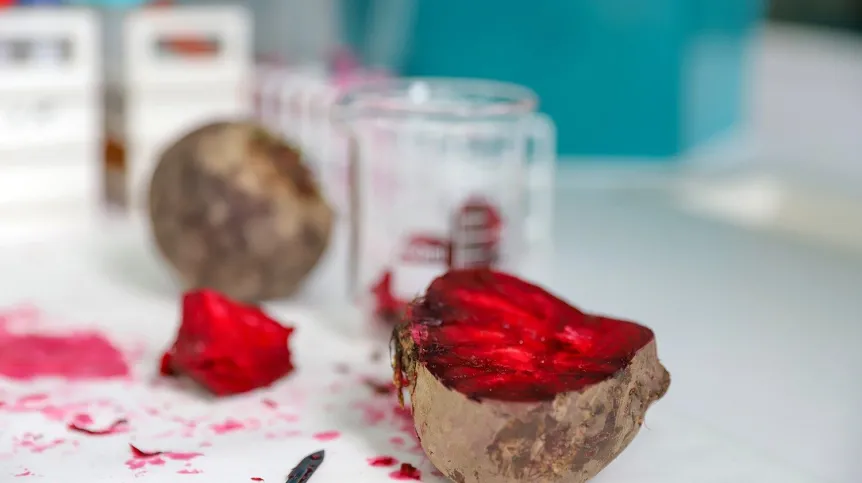
Scientists from the Poznań University of Life Sciences have developed a method for making ice cream from unsaleable beets. Although that beets are wilting and too ugly to be sold in stores, they are a source of vitamins, antioxidants and fibre.
According to the scientists, beetroot ice cream retains valuable health-promoting properties.
Professor Joanna Kobus-Cisowska from the Department of Gastronomy Sciences and Functional Food at the Poznań University of Life Sciences points out that a significant problem in the case of beets is storage - they contain a lot of water, which is why they easily wilt, shrink and eventually spoil. Many of them are thrown away before they even reach stores. In order to combat this waste, the scientists have developed a way to use valuable but unsightly beets.
'In cooperation with a business partner, we have developed the entire procedure for obtaining such ice cream. We have also created a new plate freezer, in which a non-toxic liquid derived from potassium salt was used as a coolant that can have direct contact with food products. The production process enables the production of ice cream from whole beets, including the peel', says Professor Kobus-Cisowska.
The product has the potential to expand the associations with beets: borscht and salad will now be joined by sweet and health-promoting sorbets. The project may also bring benefits to local businesses: innovative beet processing technology protects them from unnecessary losses, which, according to estimates, may amount to as much as 15 percent of the entire yield.

Beets are a source of vitamins, antioxidants and fibre. They can lower blood pressure, thus preventing the development of certain cardiovascular diseases. The average Pole eats only 3 kg of beets out of a total of about 110 kg of vegetables per year.
The university reminds that the third Sunday of July is World Ice Cream Day. 'When celebrating this day, it is worth trying unusual flavours and appreciating the creativity of scientists and entrepreneurs who can turn an inconspicuous vegetable into an exquisite dessert', the Poznań University of Life Sciences press office reports. (PAP)
rpo/ malk/ kap/
tr. RL













